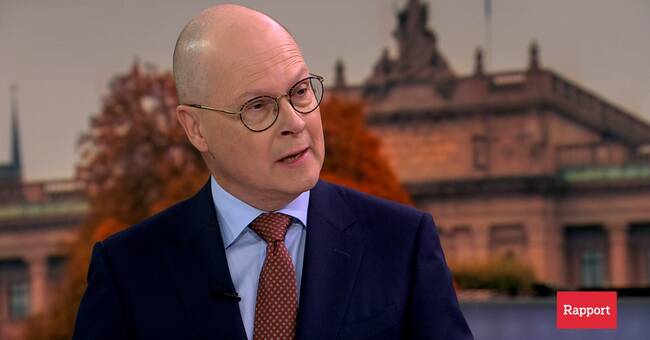All budget motions have now been presented.
Now the process begins in the Finance Committee.
Everything will be decided no later than 24 November when the Riksdag is to make the first budget decision.
There is thus quite a lot of time to loosen the knots that exist.
But never before has the parliamentary situation regarding a government's budget been so unclear before a budget debate.
At the same time, the party leadership process in the Social Democrats is underway, which means that the Riksdag will also take a position on a new prime ministerial candidate during the autumn.
This process will run in parallel with the budget process, and both processes are likely to affect each other.
The opposition rates the government's family week
Based on the opposition parties' budget proposals, it can be concluded that the government's family week is living dangerously.
Not only the opposition on the right but also the Center Party wants to iron out this reform, which the Social Democrats went to the polls in 2018. The opposition on the right also wants to abolish the government's building subsidies to take another example.
The Moderates, the Christian Democrats and the Sweden Democrats will now try to agree on a common counter-alternative.
How the Liberals act in such a situation is still unclear.
In addition to the abolished family week and abolished building subsidies, however, there seem to be opportunities to agree on investments in the judiciary, reduced income taxes, reduced labor market policy programs but also cuts in parts of environmental and climate policy.
The controversial tax on plastic bags should be abolished, for example, the opposition on the right thinks.
They also want to open up for more nuclear power and propose, among other things, a research reactor.
Still disagree on a lot
But there is also much that the right-wing opposition does not agree on.
But these are problems that the opposition is hardly trying to solve this autumn without a discussion that will only take over after a possible election victory.
Både Moderaterna och Sverigedemokraterna vill skära kraftigt i biståndet. Det vill inte Kristdemokraterna och inte heller Liberalerna. Sverigedemokraterna vill bygga ut A-kassan och göra den obligatorisk, förslag som inte återfinns i Moderaternas eller Kristdemokraternas motioner. Flera borgerliga partier säger också nej till höjt tak i sjukförsäkringen, medan Sverigedemokraterna i allt väsentligt står bakom regeringens politik här. Sverigedemokraterna vill på sikt dessutom genomföra en kraftig höjning av pensionerna med en teknik som inte minst Moderaterna är djupt skeptiska till.
But all this will, as I said, be differences of opinion that will only be dealt with after a possible election victory.
The reservation that the opposition on the right will now try to agree on is rather about the issue areas where to a large extent there is already a consensus, for example on investments in the judiciary, certain taxes and parts of climate policy.
Decisive how C and V vote
Still, this autumn's budget battle - and the Prime Minister's vote - will be decided by how the Center Party and the Left Party will finally vote on the government's budget.
The Left Party has the most difficult situation here.
If the party abstains in the decisive vote, the Moderates' budget can go through, which would mean a clearly worse factual political outcome for the Left Party.
For the Center Party, the situation is different.
In economic policy, one is closer to the Moderates.
On the other hand, opposition within the Center Party is strong to ties with the Sweden Democrats.
This means, if one is to interpret today's statements by Annie Lööf, that the Center Party is prepared to vote yes to the government's budget if the party is heard for its demands for strengthened ownership of forests and relaxed beach protection.
But whether that will be the case is still largely unclear.

